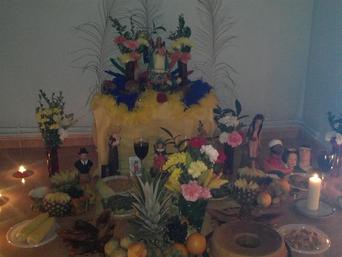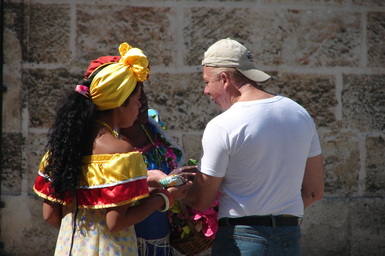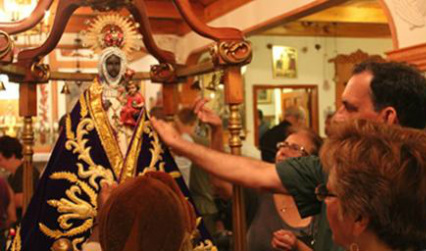
Experienced godparents will tell their godchilden not to be in a hurry to find out who's the owner of their heads, because there's no reason to know this information until you're ready to make Ocha (undergo initiation). It's important to get to know more about the religion first, learn about all the Orichás, and make sure you have a good relationship with them all before you focus too closely on one in particular. The Orichás are jealous of each other and don't like it when their children pay too much attention to another Orichá. That's why it's crucial that the ceremony be done at the proper time and in the proper way, so there are no misunderstandings between the Orichás about who is the true owner of the person's head.

Who was it that said that a little knowledge is a dangerous thing? In the case of involvement with Santería, that's certainly true. Newcomers to the religion are sometimes anxious to know who's their mother or father because they're looking for a shortcut and want to establish an immediate bond with one of the Orichás. They hear about Changó and fall in love with his fiery passionate nature, or they hear about Ochún and fall in love with her sweet sensuality. They identify for whatever reason with the popular representation of Eleguá as a playful child, or Ogún as the hard working, efficient warrior, or Obatalá as the wise, level headed figure of authority. The stories and legends, the music and dances, the natural elements associated with the Orichás, such as rivers and oceans and mountains, are fascinating and draw people into the religion, but only in a superficial way. When people decide on their own, "I'm the son or daughter of...", they're claiming a bond that is purely imaginary on their part. What's dangerous about that? There's nothing inherently wrong with showing love and respect toward the Orichás. Aleyos (non-initiates) can worship through prayer, song, and small offerings of fruits, flowers or candles. But, again, the Orichás have jealous natures. Because they were once human and still retain some of their human qualities, they aren't perfect beings. They're powerful, they have the ability to forgive and help those who reach out to them, but they're also quick to punish those who are disrespectful toward them or ignore them. In short, playing favorites with the Orichás can lead to trouble if you aren't careful, and you need to have your relationship with them clearly defined and formalized before you can work with them in any deep and meaningful way.

 RSS Feed
RSS Feed